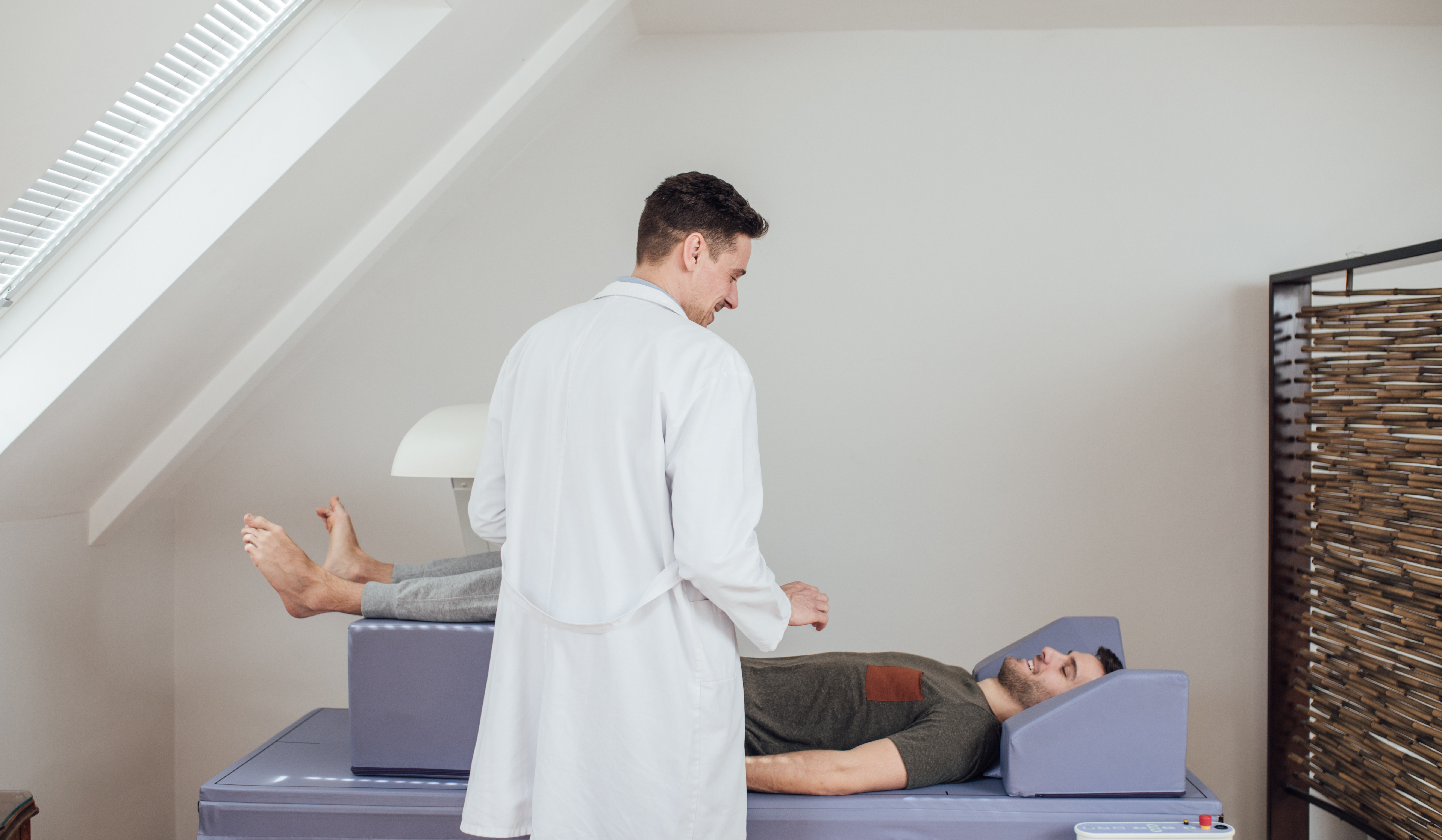DEXA Scan

Regenerative Medical Group
Regenerative Medicine Specialists and Peptide Therapy Clinic located in Orange, CA and serving all of Orange County.
DEXA Scan Q & A

DEXA Scan - The Gold Standard for Measuring Bone Density
What is DEXA Scan?
DEXA scan, also known as Bone Density Scan, detects the strength & thickness of the bone. It also helps in the diagnosis & detection of Osteoporosis & Osteopenia fracture risks.
A DEXA scan also uses a low radiation dose, meaning the health risks are much lower than standard X-rays.
This scan can help detect the strength & thickness of the bone in the various parts of the body like Arms, legs, neck, hip, and spine.
What is a DEXA scan used for?
DEXA scan is used to:
-
Access bone strength
-
Calculate bone density
-
Measure fat mass
-
Diagnose osteoporosis & osteopenia
-
Predict the risk of future fractures
-
Check treatment efficiency
Who is at risk of developing Osteoporosis?
-
Over the age of 50 with the risk of developing osteoporosis
-
History of smoking, alcohol consumption, and Low BMI (body mass index)
-
People with higher FRAX risk scores
-
Menopause and low estrogen
-
History of hip fracture
-
Bone thinning caused by Glucocorticosteroids, Heparin / Warfarin, medroxyprogesterone acetate, cancer drugs, and thyroid hormone
-
Vitamin D deficiency
“1 in 2 women and up to 1 in 4 men will break a bone in their lifetime due to osteoporosis, according to the National Osteoporosis Foundation.”
A DEXA scan may be recommended if you have an increased risk of developing a bone problem like osteoporosis. Here are some of the Risk Factors that could cause issues with your bone health:
-
Celiac disease
-
Excessive alcohol consumption
-
Hyperthyroidism, or hyperparathyroidism
-
Inflammatory bowel disease
-
Kidney or liver disease
-
Multiple myeloma
-
Rheumatoid arthritis
-
Seizures, Gastric reflux, Cancer, and Transplant rejection medication
-
Type 1 diabetes mellitus
-
Tobacco use
What are the symptoms of Osteoporosis?
-
Back pain caused by a fractured or collapsed vertebra
-
Loss of height over time
-
A stooped posture
-
A bone that breaks much more easily than expected
How to prepare yourself for the scan?
There are a few things to follow before going in for a DEXA Scan:
-
Avoid calcium supplements 24 to 48 hours before your test
-
Eat and drink normally prior to the scan
-
Avoid wearing metallic objects during the scan
-
Consult your physician if you are pregnant before the procedure
-
Simple & painless procedure
-
Plan for the procedure to take 10-30 minutes
-
Expect no downtime or pain associated with the scan
Pre-scan assessments
-
FRAX - The Fracture Risk Assessment Tool, estimates your risk of having a hip or other major fracture in the next 10 years
-
Kinetisense - A full-body functional movement test
Reports are provided within 24 hours.
Our Services
-
 Annual Physicalmore info
Annual Physicalmore info -
 Brain Trainingmore info
Brain Trainingmore info -
 Immunotherapymore info
Immunotherapymore info -
 IV Infusion Therapymore info
IV Infusion Therapymore info -
 Medicare Annual Wellnessmore info
Medicare Annual Wellnessmore info -
 Medication Therapy Managementmore info
Medication Therapy Managementmore info -
 MSK Injectionmore info
MSK Injectionmore info -
 Neuromuscular Rehabilitationmore info
Neuromuscular Rehabilitationmore info -
 Osteopathic Manipulative Treatmentmore info
Osteopathic Manipulative Treatmentmore info -
 Peptide Therapy & Injectionsmore info
Peptide Therapy & Injectionsmore info -
 Primary Caremore info
Primary Caremore info -
 Virtual Realitymore info
Virtual Realitymore info -
 Low Back Painmore info
Low Back Painmore info -
 Shoulder Painmore info
Shoulder Painmore info -
 Hip Painmore info
Hip Painmore info -
 Knee Painmore info
Knee Painmore info -
 Chest Painmore info
Chest Painmore info -
 Elbow Painmore info
Elbow Painmore info -
 Foot & Ankle Painmore info
Foot & Ankle Painmore info -
 Bioidentical Hormone Replacement Therapymore info
Bioidentical Hormone Replacement Therapymore info -
 NAD+IVmore info
NAD+IVmore info -
 Neurofeedbackmore info
Neurofeedbackmore info -
 DEXA Scanmore info
DEXA Scanmore info -
 SOT Therapymore info
SOT Therapymore info

























